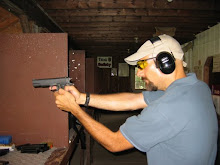BOSTON - Roughhousing between friends. Smoking cigarettes on campus. Writing your name on a desk. These are just a few of the reasons for the more than 20,000 school suspensions last year that lasted fewer than 10 days - the magic number for school administrators, who have to report any longer exclusions to the school committee.
The Joint Committee on Education heard testimony on a bill this week that would make it more difficult to exclude children from school as politicians search for ways to keep kids in school.
It's easy to see both sides of this issue. From the administration side, it could be viewed as an attempt to tie their hands as to how they can discipline kids. It's another law tossed on the books to add yet another number by which the crunchers must obey. Nine 10-day suspensions is okay; the 10th is not allowed. It doesn't seem to make much sense - you're talking about suspending the student for more than half the year.
On the other hand, if you've got a student who is so disruptive that they need to be barred from class for more than half the school year, shouldn't that be open to some sort of review? Shouldn't it be obvious after the third, fourth, or fifth two week suspension that this is a "student" that needs more careful observation, and by the seventh or eighth suspension should be expelled. It seems that by allowing an unlimited number of two-week suspensions, what's created is a de facto expulsion, sans review.
It'd be really easy for a petty tyrant to abuse that power...
Even given the number of events that warrant an "automatic" suspension (carrying a [butter] knife; possession of [over-the-counter cold] drugs; etc.), it seems that your average marginal student shouldn't garner more than one or two suspensions over a year. It would seem prudent that more than one two-week suspension in a quarter should be grounds for review - two weeks out of nine is bad enough; going to four (the second suspension) is nearly half of the school quarter.
Then again, with only a firearm charge or perhaps a drug dealing charge being sufficient to actually expel a student, keeping a real problem child out of the classroom becomes a dicey proposition. If the principal proposed expulsion and is rebuffed, maintaining discipline becomes tricky, especially for that student. It's easy to see why an administrator would not want their hands tied with regards to discipline.
However, what's puzzling is why they would want the discipline shielded from review...
That is all.







4 comments:
Sure, bring another layer of review, and thus likely more lawyers into the mix. What could go wrong with that? The result of this law, if passed, will be that schools will stop suspending kids. Which will do wonders for discipline in the class room. Which, if you know anyone who teaches at the middle or high school levels is almost nil as it is.
In urban systems it's not unusual for "kids" to get out of jail or prison and then resume their academic career. Remember schools have to allow students to stay in until they reach 22.
IT should be easier, not harder, to discipline kids without over reviewing every move that administrators make. It's hard enough to get a kid suspended now, this will make it almost impossible.
Mrs. TOTWTYTR deals with this stuff every day. The stories she tells would make your hair stand on end.
What ever happened to detention? Do they not do this any more?
I wonder if the students who have been suspended so much can graduate? Do they make up the time somehow? The focus of high schools seems to have drifted away from education.
Ross, but the kids often blow it off. Which leads to In School Suspension. Which is where they are supposed to do the make up classes.
Which, amazingly, they also blow off.
Post a Comment